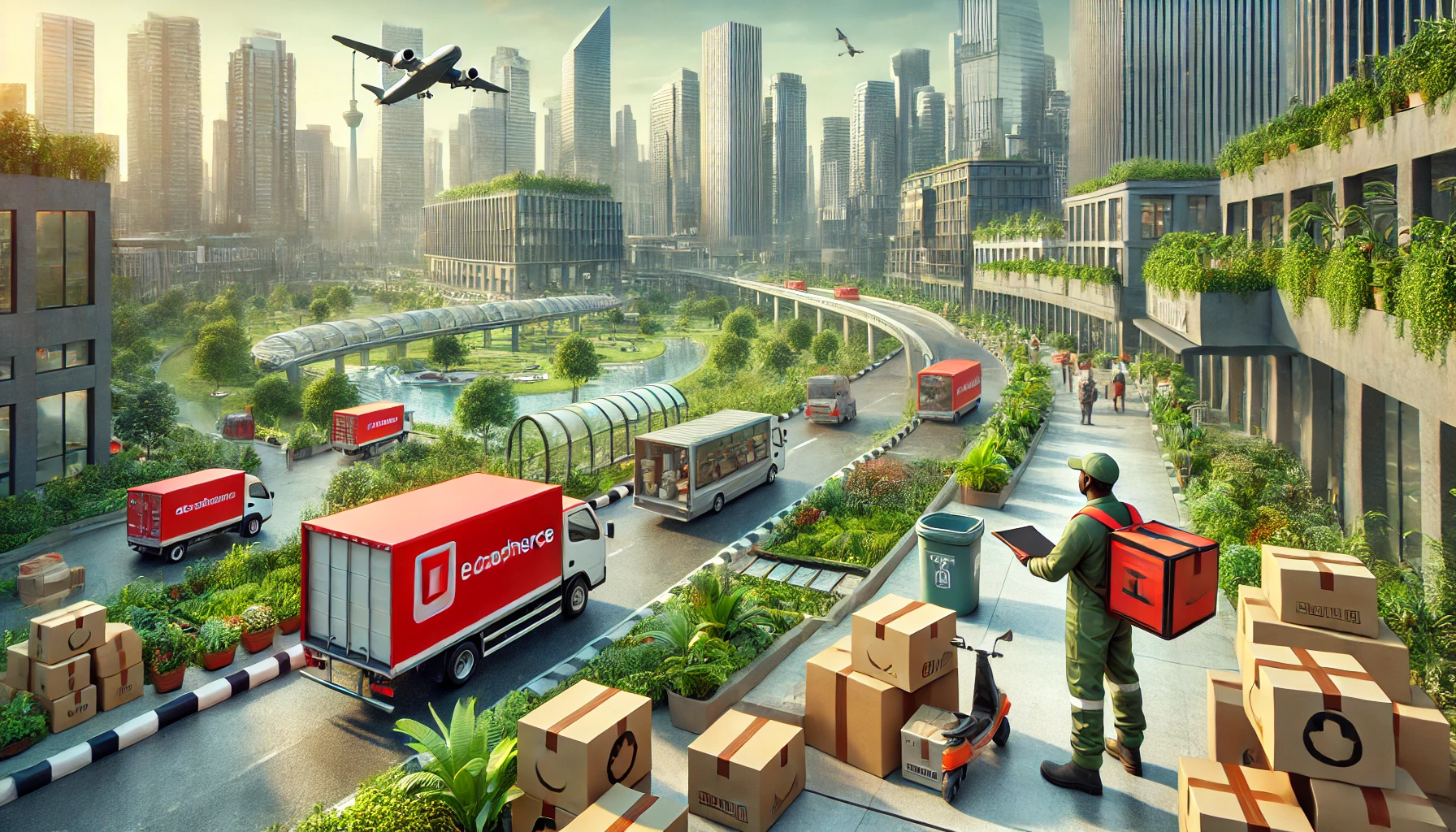Tackling India's E-Commerce Plastic Waste: Sustainable Solutions and Legislative Actions
The rapid growth of India's e-commerce industry has led to a significant increase in packaging plastic waste, prompting the need for multi-faceted solutions involving legislative measures, sustainable practices by e-commerce giants, and consumer engagement to ensure a cleaner, sustainable future. Researchers from Monash University propose strategies to mitigate this environmental challenge effectively.

The exponential growth of e-commerce in India, fueled by initiatives like Digital India and the transition to a cashless economy, has significantly transformed consumer behavior and retail practices. However, this surge has also led to a substantial increase in packaging plastic waste, creating a significant environmental challenge. A recent study by researchers from Monash University Malaysia and Monash University Australia explores the factors contributing to this waste and the legislative measures aimed at mitigating it.
E-Commerce Boom: A Double-Edged Sword
India's e-commerce industry has experienced meteoric growth, with its value projected to reach USD 111.4 billion by 2025, growing at a compound annual growth rate (CAGR) of 19.24%. Key drivers include increased internet penetration, affordable smartphones, and the pandemic-induced shift to online shopping. However, this growth has resulted in the widespread use of secondary and tertiary packaging, often unnecessary and harmful to the environment. The packaging industry, rapidly expanding and significantly contributing to India's economy, also plays a major role in the plastic waste crisis. Packaging materials account for 46% of plastic waste, necessitating effective waste management solutions. The Central Pollution Control Board (CPCB) has identified that a significant portion of municipal solid waste in major cities consists of high/low-density polyethylene (HDPE/LDPE), commonly used in packaging.
Legislative Action: Turning the Tide on Plastic Waste
Over the past decade, India has introduced several legislative measures to address the plastic waste issue. Significant initiatives include the Clean India Mission (Swachh Bharat Abhiyan) and the Lifestyle for Environment (LiFE) Mission. Extended producer responsibility (EPR) frameworks, introduced in 2011 and subsequently amended, aim to hold producers accountable for the lifecycle of their products, including waste management. Despite these efforts, the e-commerce sector has largely escaped stringent regulations until recently. The Plastic Waste Management (Amendment) Rules of 2022 marked a significant shift, explicitly including online platforms and marketplaces as stakeholders responsible for managing packaging waste. This legislative change is crucial for addressing the growing plastic waste generated by the e-commerce sector.
E-Commerce Giants Lead the Way in Sustainable Practices
Case studies on prominent e-commerce platforms such as Amazon India, Flipkart, Zomato, Swiggy, Blinkit, and Myntra reveal varied approaches to tackling packaging waste. Amazon India, for instance, has made strides in reducing plastic use by replacing bubble wraps with paper cushions and using biodegradable tapes. However, discrepancies in regulatory compliance suggest a need for stricter enforcement. Flipkart, which claims to have eliminated single-use plastics from its supply chains, focuses on eco-friendly packaging alternatives and collaborates with recyclers to manage plastic waste. Food delivery platforms like Zomato and Swiggy have also initiated measures to reduce plastic use, such as offering plastic-neutral deliveries and providing sustainable packaging options through virtual marketplaces. Blinkit and Myntra have implemented similar initiatives, promoting biodegradable and sustainable packaging materials.
A Multi-Faceted Approach to Reducing Plastic Waste
To further mitigate the packaging plastic crisis, a multi-faceted solution encompassing pre-shipping, post-shipping, and legislative frameworks is proposed. Pre-shipping strategies include influencing consumer behavior towards sustainable products and optimizing packaging to minimize waste. Post-shipping solutions involve engaging consumers in waste collection and value recovery processes, potentially through waste bank models that integrate formal and informal waste collectors. Legislative improvements are essential, such as setting clear guidelines for end-of-life disposal of plastic waste, coordinating waste collection efforts, and enforcing stringent EPR regulations. Additionally, incorporating design for environment (DfE) principles and public-private partnerships (PPP) can enhance waste management practices.
Towards a Sustainable E-Commerce Future
While India has made significant progress in addressing plastic waste through policy legislation and community initiatives, the growing packaging plastic waste from the e-commerce sector remains a critical challenge. Implementing the proposed multi-faceted solution can guide the e-commerce industry towards a more sustainable future, ensuring cleaner production and effective waste management. The Plastic Waste Management Rules, updated to meet the dynamic plastic waste economy in the country, must define all aspects of waste management precisely to avoid free riders. The e-commerce sector, which had previously evaded stringent regulations, must now adapt to the changing legislative landscape.
The proposed multi-faceted solution integrates pre-shipping, post-shipping, and legislative strategies to address the packaging plastic challenge effectively. Influencing consumer behavior, optimizing packaging practices, and establishing robust waste collection systems are crucial steps. Engaging consumers and integrating informal waste collectors into formal supply chains can enhance waste recovery and recycling efforts. Legislative frameworks must be strengthened to ensure compliance and enforcement, promoting sustainable practices across the e-commerce industry. By adopting these measures, India can significantly reduce packaging plastic waste, creating a more sustainable and environmentally responsible e-commerce industry. This holistic approach is essential for addressing the packaging plastic crisis and ensuring a cleaner, greener future for the country.
ALSO READ
Zomato Acquires Paytm's Entertainment Ticketing Business for Rs 2,048 Crore
Paytm Sells Entertainment Ticketing Business to Zomato for Rs 2,048 Crore
Paytm to sell entertainment ticketing business to Zomato for Rs 2,048 crore: BSE filing.
Paytm Divests Entertainment Ticketing to Zomato in Rs 2,048 Crore Deal
Zomato Shuts Down 'Legends' Intercity Food Service










